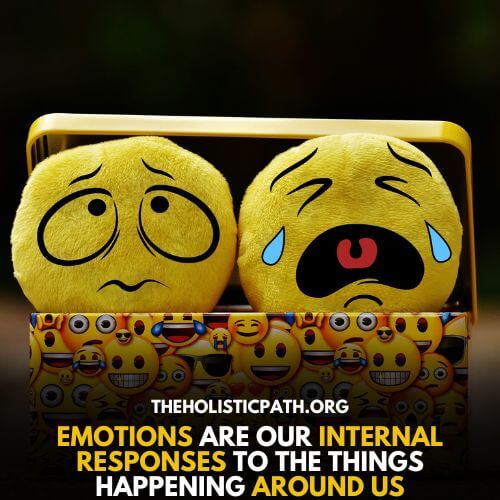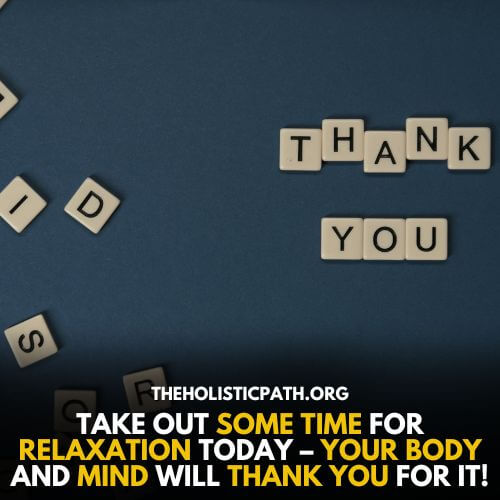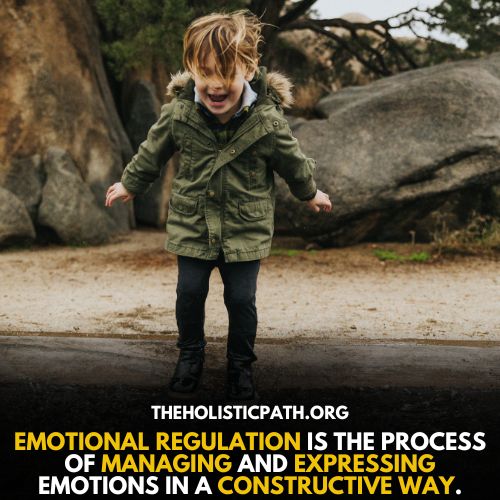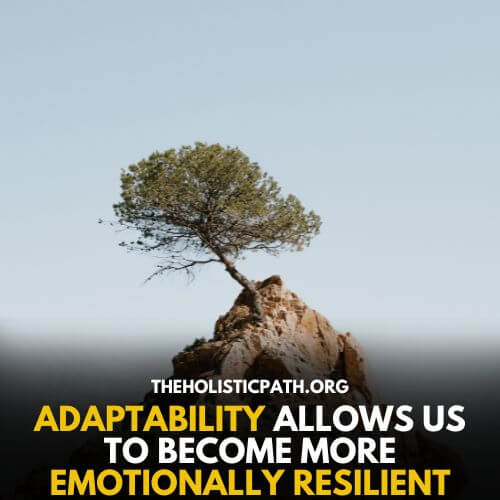The answer to the question, “Is relaxation an emotion?” is not so clear-cut. Some experts say that relaxation is its own emotion, while others believe that it is simply a state of mind that can be achieved through different methods. What is certain, however, is that relaxation can be incredibly beneficial for both the body and mind.
So without further ado let’s dive in and try to figure out whether relaxation is an emotion or not.
What Are Emotions?
Before we find an answer to our question ‘is relaxation an emotion’ we need to understand What is an emotion? According to dictionary.com, an emotion is “a natural instinctive state of mind deriving from one’s circumstances, mood, or relationships with others.”
In other words, emotions are our internal responses to the things happening around us. They can be positive or negative, and they can vary in intensity.

Emotions are complex mental and physiological responses that are triggered by events or experiences. They involve changes in our thoughts, feelings, and behaviors.
So now you must be thinking, what is relaxation?
What Is Relaxation?
Relaxation is often viewed as a passive activity, something that we do to vent out in front of the TV or take a nap. But relaxation can also be active, something that we do to rejuvenate and recharge our batteries.
In fact, relaxation is essential for good health, and there are many different ways to achieve it. For some people, relaxation means spending time in nature, surrounded by the beauty of the outdoors.
For others, it may mean listening to calming music or engaging in a hobby that brings them joy. Whatever form it takes, relaxation is an important part of a healthy lifestyle.
There are many different benefits to relaxation, both physical and mental. Relaxation can help to reduce stress levels, improve sleep quality, and boost concentration and focus.
It can also help to improve our overall sense of well-being and promote feelings of calm and relaxation. When we take the time to relax on a regular basis, we are giving our bodies and minds the opportunity to recover from the stresses of daily life.
As a result, we are better able to handle whatever comes our way. So take out some time for relaxation today – your body and mind will thank you for it!

There seems to be a very thin line separating emotions and relaxation. This is the reason we find ourselves asking; ‘is relaxation an emotion?’
Let’s begin by understanding what scholars have to say about it.
Is Relaxation An Emotion?
Is relaxation an emotion? It’s a question that has been debated by scholars for centuries, and there is no clear consensus. However, there are some valid arguments to be made on both sides.
On the one hand, relaxation is often experienced as a positive emotion. When we are relaxed, we often feel happy, peaceful, and content. We may even experience a sense of euphoria. Given these positive feelings, it makes sense to classify relaxation as an emotion.
On the other hand, some experts argue that relaxation is not an emotion at all. They point out that emotions are typically associated with physical arousals, such as increased heart rate or sweating. In contrast, relaxation is characterized by physical and mental calmness. Therefore, they argue, that it should not be classified as an emotion.
Can Relaxation Be An Emotion?
There is some scientific evidence that suggests that relaxation may have some benefits for emotional health. One study found that people who practiced relaxation techniques reported lower levels of anxiety and depression than those who did not practice relaxation.
However, it is important to note that these findings do not necessarily mean that relaxation is an emotion. It is possible that the benefits of relaxation are due to its effects on other factors, such as stress levels or cognitive functioning.
In addition to the scientific evidence, there are also many real-life examples of people who use relaxation techniques to manage their emotions.
For example, many people use yoga or meditation to relax and reduce stress levels. These practices often help people feel calmer and centered, which can in turn reduce feelings of anxiety or depression.
There seems to be no ‘yes and no’ answer to our question ‘is relaxation an emotion’. Both scientists and scholars are still divided on whether relaxation can be classified as an emotion or not.
But one thing that is clear is that we can use relaxation and relaxation techniques to regulate our emotions. You ask how …? Most of the emotional regulation techniques find their roots in relaxation. One can not regulate emotion without achieving a sense of relaxation.
What Is Emotional Regulation?
Before we discuss how to regulate our emotions…. Let’s discuss what emotional regulation is and why it is really needed in our life.
At one point or the other everyone is overwhelmed by emotions. Maybe you felt angry over a pity thing and hit your friend, or sad that you could barely get out of bed. In times like these, it can be hard to think clearly and make rational decisions.
That’s where emotional regulation comes in. Emotional regulation is the process of managing and expressing emotions in a constructive way. When we’re able to regulate our emotions, we’re less likely to make impulsive decisions or say things we might later regret. We’re also better able to cope with stress and manage our overall mental health.

In other words, emotional regulation is essential for living a happy and healthy life. So the next time you’re feeling overwhelmed, take a few deep breaths and remember that with a little effort, you can always get your emotions back under control.
Here are some skills that can help you regulate your emotion, react to a situation better and save you from future regret.
5 Highly Effective Emotional Regulation Skills
Learning these skills can not only help you regulate your emotions well but also sustain them during an intensely emotional episode.
1. Self-Awareness
This may seem unnecessary but being aware of the emotions that you are experiencing and understanding the cause is the first step towards emotional regulation.
So next time you feel any sort of emotion try to name it for yourself. For example, if you are feeling angry ask yourself… Am I enraged, furious, or irritated?
Give yourself multiple options and let yourself explore the emotion that you are feeling. Try to be as specific as you can in naming the emotion that you are feeling. It’s not important here to figure out why you are feeling this emotion but to be aware of which emotion is trying to control you.
2. Mindfulness
When we are being controlled by emotion we lack logical reasoning and can even react in the most unreasonable ways. This is where mindfulness helps us. Simple mindfulness activities like controlled breathing can help us calm the storm aroused by strong emotions and stop us from taking any impulsive action.
3. Cognitive Reappraisal
There is no denying the fact that whenever we are overwhelmed by emotions we fail to see the other end of the spectrum. Cognitive reappraisal helps us just with that. Practicing different cognitive reappraisal therapies helps to see the stressful situation from an altogether different lens.
This role reversal approach to examining the situation is important as it helps to see the other end of the spectrum. It saves us from making any emotional decisions that we later regret.
Like if you are engrossed by the feeling that you are not liked by your friend or you are useless. Try to replace these thoughts with more positive thoughts like; maybe my friend is in distress and once he/she calms down we will be okay or I’m not bad at this, I just only require to put in a little extra effort.
This approach enables us to see things with the border approach and deal with the situation with optimism.
4. Adaptability
How does adaptability help us to regulate our emotions? One of the key ways in which adaptability helps us to regulate our emotions is by allowing us to adjust our reactions to different situations.
For example, if we are feeling anxious about starting a new job, we can use adaptability to help us manage this anxiety. We might do some research about the company and the role that we will be playing in order to feel more prepared and confident.
This way, when we start the job, we will be less likely to feel overwhelmed and anxious. In general, adaptability allows us to become more emotionally resilient, as we are better able to cope with change and setbacks.

So overall, adaptability is a key skill that helps us to cope with both positive and negative life changes. It allows us to emotionally regulate by adjusting our reactions according to the situation. This makes us more resilient and better equipped to deal with whatever life throws our way.
5. Self-Compassion
We all know how important it is to take care of our physical health, but often we neglect our mental and emotional wellbeing. Just as our bodies need time to rest and recharge, so do our minds. When we fail to set aside time for ourselves, we become run down and stressed, which can lead to all sorts of problems.
Self-compassion can help us to regulate our emotions, making us more resilient in the face of life’s challenges. Here are a few self-compassion hacks that can help you to nurture your well-being:
- Make time for yourself every day, even if it’s just ten minutes. Use this time to do something that makes you happy, such as reading, taking a bath, or going for a walk.
- When you make a mistake, instead of berating yourself, try to be understanding and forgiving. We all make mistakes; it’s part of being human. Beating yourself up will only make you feel worse.
- Talk to yourself the way you would talk to a friend. We are often much harsher on ourselves than we are on others. If your friend made a mistake, would you tell them they were worthless? Of course not! So why say such things to yourself? Try to treat yourself with the same kindness and understanding that you would show to someone else.
By making self-compassion a part of your daily routine, you’ll soon start to notice a difference in your well-being. You’ll be more resilient in the face of adversity, and better able to cope with the ups and downs of life.
So why not give it a try? You’ve got nothing to lose and everything to gain!
Is Relaxation an Emotion – The Verdict
Giving a clear-cut answer to the question ‘is relaxation an emotion’ maybe not easy. Also, we cannot draw a line that separates relaxation from emotions.
One thing that cannot be denied is that relaxation and emotion have a close connection. One can use relaxation to regulate emotions and function well in life.
